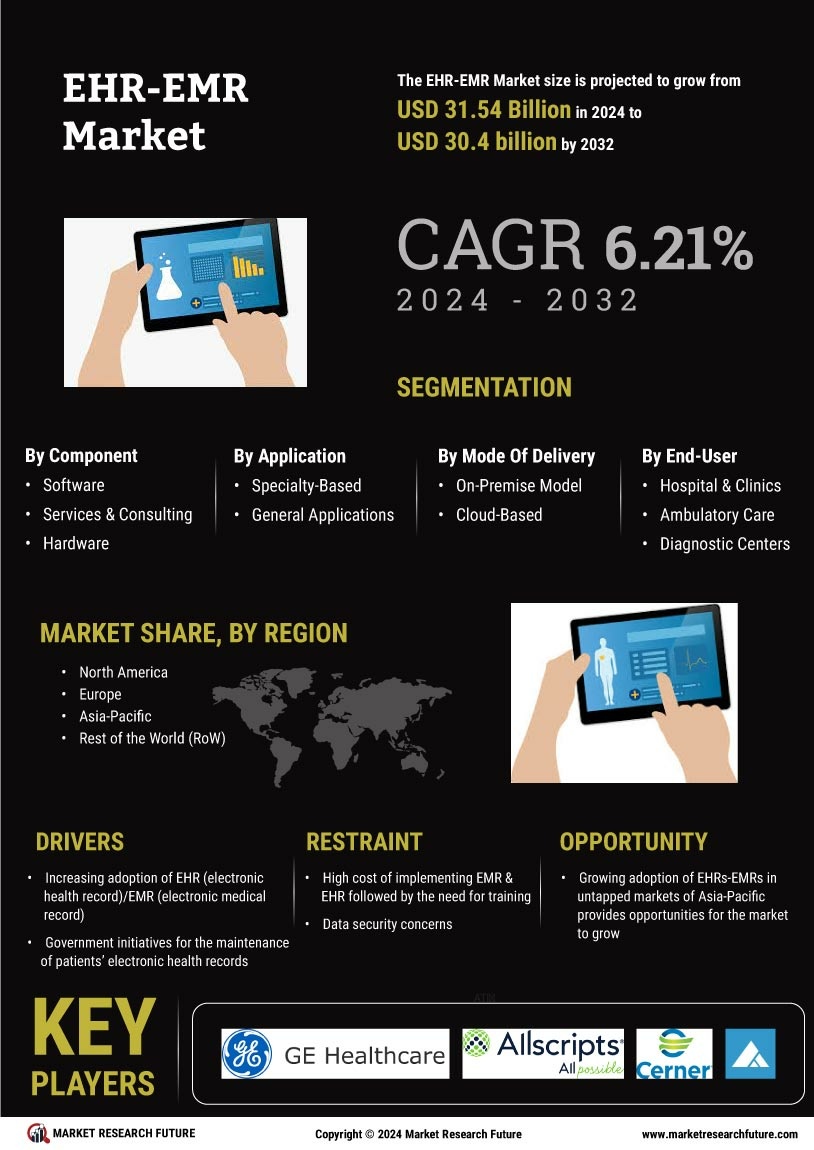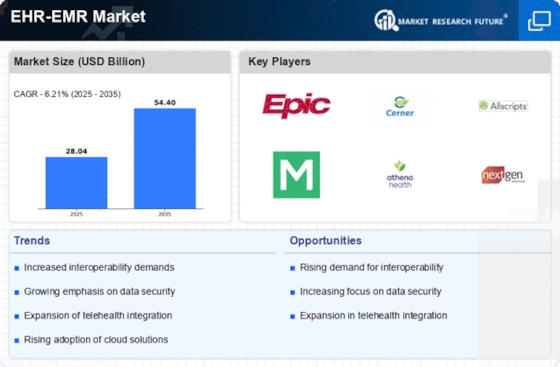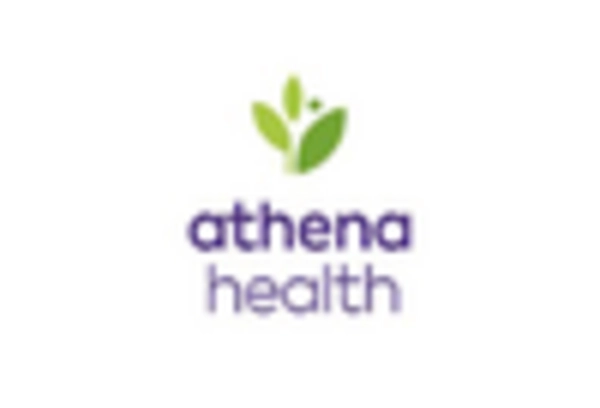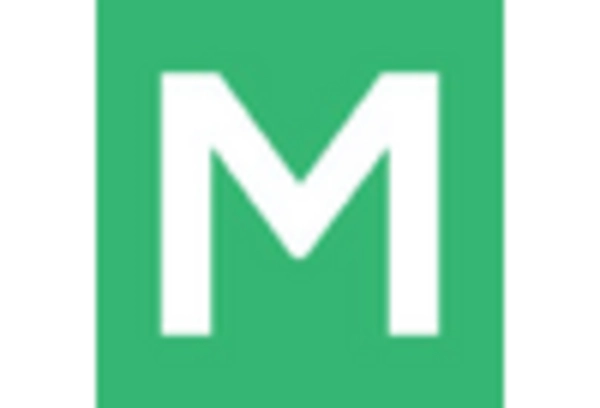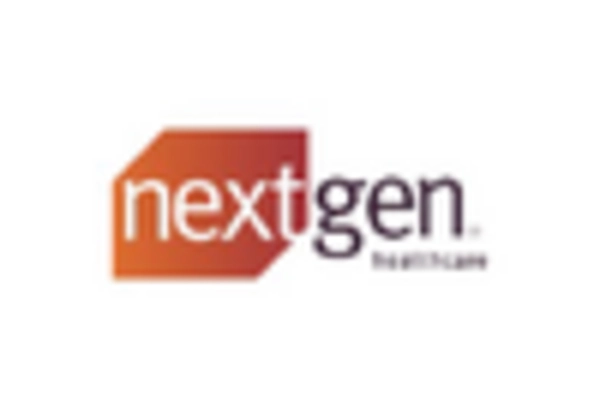Rising Cybersecurity Concerns
The EHR-EMR Market is increasingly influenced by rising cybersecurity concerns. As healthcare organizations digitize patient records, the risk of data breaches and cyberattacks has escalated. This has prompted a heightened focus on cybersecurity measures within EHR-EMR systems. Healthcare providers are now prioritizing solutions that offer robust security features to protect sensitive patient information. According to industry reports, nearly 60% of healthcare organizations have experienced a data breach in the past year, underscoring the urgent need for secure EHR-EMR systems. Consequently, the demand for EHR-EMR solutions with advanced cybersecurity protocols is likely to grow, shaping the future of the EHR-EMR Market. Organizations that fail to address these concerns may face significant reputational and financial repercussions.
Growing Demand for Data Analytics
The EHR-EMR Market is increasingly driven by the growing demand for data analytics in healthcare. Healthcare organizations are recognizing the value of data-driven decision-making, which enhances patient care and operational efficiency. EHR-EMR systems equipped with advanced analytics capabilities allow providers to extract meaningful insights from patient data, leading to improved clinical outcomes. According to recent studies, healthcare organizations utilizing data analytics have reported a 20% increase in operational efficiency. This trend is likely to continue as more providers seek to leverage data analytics to optimize their services, thereby propelling the EHR-EMR Market forward. The integration of analytics into EHR-EMR systems is becoming a critical factor for healthcare organizations aiming to stay competitive.
Regulatory Compliance and Incentives
The EHR-EMR Market is experiencing a surge in demand due to increasing regulatory compliance requirements. Governments are implementing stringent regulations to ensure patient data security and privacy, which necessitates the adoption of advanced EHR-EMR systems. For instance, the Health Insurance Portability and Accountability Act (HIPAA) mandates strict guidelines for handling patient information. Additionally, various incentive programs are being introduced to encourage healthcare providers to adopt EHR-EMR solutions. These incentives can significantly offset the costs associated with implementation, making it more appealing for healthcare organizations to invest in EHR-EMR systems. As a result, the EHR-EMR Market is likely to witness accelerated growth as providers seek to comply with regulations while also benefiting from financial incentives.
Increased Focus on Patient Engagement
The EHR-EMR Market is witnessing a notable shift towards enhancing patient engagement. Healthcare providers are increasingly recognizing the importance of involving patients in their own care processes. EHR-EMR systems that facilitate patient access to their health information, appointment scheduling, and communication with providers are becoming essential tools. This focus on patient engagement is supported by research indicating that engaged patients are more likely to adhere to treatment plans and experience better health outcomes. As a result, healthcare organizations are investing in EHR-EMR solutions that prioritize patient engagement features, which is likely to drive growth in the EHR-EMR Market. The emphasis on patient-centered care is reshaping the landscape of healthcare technology.
Technological Advancements in Healthcare
The EHR-EMR Market is significantly influenced by rapid technological advancements in healthcare. Innovations such as cloud computing, mobile applications, and machine learning are transforming the way healthcare providers manage patient information. Cloud-based EHR-EMR systems offer enhanced accessibility and scalability, allowing providers to access patient data from anywhere, which is particularly beneficial for telehealth services. Furthermore, machine learning algorithms can assist in predictive analytics, improving patient outcomes by identifying potential health risks early. As these technologies continue to evolve, they are likely to drive the adoption of EHR-EMR systems, thereby propelling growth in the EHR-EMR Market. The integration of cutting-edge technology is becoming a key differentiator for healthcare organizations.
